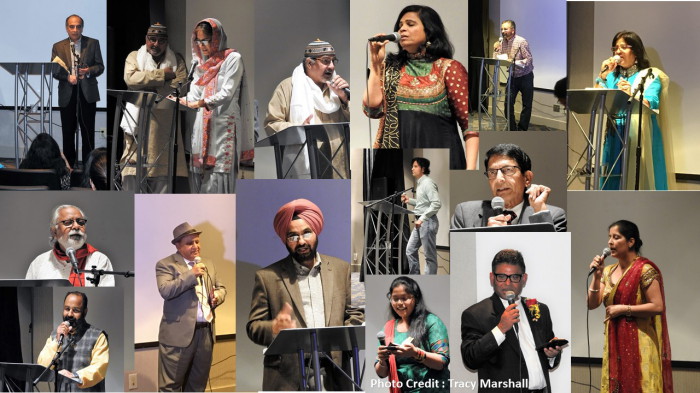DESIBUZZCanada
Events Listings
Dummy Post

International Day Of Yoga To Be Virtually Celebrated Saturday At 4pm

CANCELLED: Coronavirus Fears Kills Surrey’s Vaisakhi Day Parade

ADVERTISE WITH US: DESIBUZZCanada Is The Most Read South Asian Publication Online

SURREY LIBRARIES: Get Technology Help At Surrey Libraries

WALLY OPPAL: Surrey Police Transition Update On Feb. 26

GONE ARE THE DAYS - Feature Documentary Trailer

Technology Help At Surrey Libraries

Birding Walks

Plea Poetry/short Story : Youth Contest

International Folk Dancing Drop-in Sessions
BULLEH SHAH: Explore Your Inner-Self For A Better You To Create A Better World
- January 20, 2023

By Promod Puri
Sufi poet and philosopher Bulleh Shah (1680-1757) says: “Parh parh alim fazil hoya, kadey apnay aap nun parhya he nai.”
Translation and meaning: A person becomes knowledgeable or a scholar by endless reading and studying vast volumes of books, but he might not have ever read his inner self.
Bulleh Shah's marked observation sounds like a satirical remark directed at those learned pundits of knowledge and wisdom. But it carries a relevant and significant message for all literary and ordinary folks.
The word from Bulleh Shah divulges that we rarely embark on self-navigation. On the contrary, most get obsessed with or entertain themselves, exploring the nature and habits of others.

The reading of the self is what Bulleh Shah prescribes. It involves learning about one's conscious mind, a subject that hardly gets our attention.
What we know about ourselves is mainly constructed, to some extent, by the perception of others about us.
Introspection is the key word that institutes self-perception, self-pondering or self-analysis. It is a process of looking inward to check out one's conscious thoughts that spawn and generate emotions, behaviours, judgements, beliefs, temper and temperament.
A personality is thus developed that could be of sincerity, humbleness, compassion, caring, smiling, humorous and everything else of good nature. Or it could be pride, ego and narcissism with layers of distorted, fake and unrealistic concepts and sentiments, where the unreal look real.

The awareness of our personality traits, good, bad or mixed, is what introspection means.
These psychological life modes that constitute mindset behaviour need comprehension and review. In this discerned approach, a careful self-examination helps to see the positive and the negative.
It is an internal monologue examining one's conscious logic and feelings that contrast and distinguish with the external observation of others or others' views of oneself.
The study of self reveals the awareness and practice of our intellect, nature and peculiarity that represents us as individuals.
"Why should we not calmly and patiently review our thoughts and thoroughly examine and see what these appearances in us are," according to the philosopher Plato.
Our individuality emerges in these "appearances," which constitute several disciplines that need periodic review.
It is a study of chapters written by us, and that gives an authentic identity of who we are as individuals and the chance to introduce corrections where and when desired.
Life, after all, involves lifelong corrections and updates, which is why Bulleh Shah's emphasis on reading the self is so relevant for all, literates and the rest.
Does an ethical check-up of the self make us better human beings and a better world?
The 17th-century poet-philosopher would say "yes."
Promod Puri is a Vancouver-based writer and author and founder of the oldest South Asian English language newspaper The Link.












